Arts & Culture
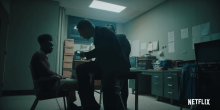
I watched Ava DuVernay’s Netflix series When They See Us and found myself angered by the people and systems that had a role in the incarceration of five innocent boys. The Central Park Five, Raymond Santana, Kevin Richardson, Antron McCray, Yusef Saalam, and Korey Wise, were wrongfully convicted and later exonerated of a variety of charges related to the rape and assault of a white female jogger in 1989. While the series itself honors the stories of the Central Park Five, in choosing to title the series When They See Us, DuVernay invites us into a broader conversation on the criminalization and mass incarceration of young boys and girls of color, and challenges us to define our own role within this system.

This seep of droplets sponged by moss leaked
from a cleft in the rock; the waters in the cleft
rose osmotically from earth:
the aquifers of earth rained down
from cloudburst skies;
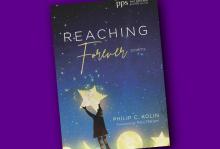
HUMANITY HAS BEEN reaching ever since Eve put her hand out and plucked the forbidden fruit. Since then, our acts of extension have been plagued far too often with violence and, in the end, death and despair. Philip Kolin’s new book of poetry, Reaching Forever: Poems, takes on those stretches and examines them with grace. His book is a fresh take on what it means to be loved and loving.
In the poem “God Comes to the Eternal Gate Holiness Church,” Kolin makes short work of people whose reaching is unsuccessful, via one of my favorite lines: “Bystanders down country roads reach out to him.” In other words, the spiritual life is not one for spectators but for those who do God’s will.
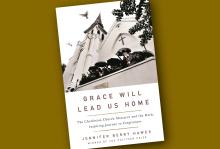
"AND THERE SAT a dark leather-bound Bible soaked in blood. A bullet had pierced its pages.”
The Bible belonged to Felicia Sanders, one of the five people to walk out of Mother Emanuel AME Church alive after a stranger who had been welcomed to a Bible study shot and killed Rev. Clementa Pinckney, Cynthia Hurd, Susie Jackson, Ethel Lance, Rev. DePayne Middleton-Doctor, Tywanza Sanders, Rev. Daniel L. Simmons, Rev. Sharonda Coleman-Singleton, and Myra Thompson.
The quote is from Jennifer Berry Hawes’ new book, Grace Will Lead Us Home: The Charleston Church Massacre and the Hard, Inspiring Journey to Forgiveness. With measured prose and journalistic excellence, this book rounds out the forgiveness and grace that have become synonymous with the Charleston massacre by exposing the outrage, isolation, and bumpy road of grief that followed the deaths.
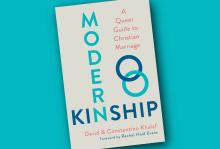
THE CHURCH THAT baptized me and was my spiritual home does not provide marriage counseling to LGBTQ couples. I doubt it even allows openly LGBTQ people to join its congregation. This treatment isn’t unusual: For years, many LGBTQ people have been denied true belonging and dignity in church bodies worldwide. Their romantic partnerships have been damned by clergy and discredited by loved ones. While heterosexual couples have been given pastors’ blessings and guidance, many LGBTQ couples have been abandoned to the harshness of life’s challenges.
David and Constantino Khalaf know this struggle well and don’t want queer Christians interested in finding a partner to have to figure out the complexities of faith, marriage, and commitment on their own. That’s why they have bravely written the book Modern Kinship: A Queer Guide to Christian Marriage.
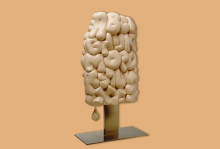
“ARTISTS EXPRESS things that people don’t have words for; that’s why it’s so important to have them in justice spaces.”
With that neat answer, the panelist sits back in her chair, satisfied, bedazzled nails glimmering in the stage lights. I roll my eyes, then immediately feel guilty. You know you’re in for a rough night when you find yourself side-eyeing a Tony Award-winning actress—at a Martin Luther King Jr. Day event, no less—but I can’t help myself. Her answer smacks of the vague, self-congratulatory art-speak I hear on a regular basis, in which people tell me their work is a “metaphor for capitalism,” without any kind of explanation.
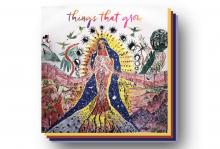
Among the Branches
Retro sounds meet recent dangers in the album Things That Grow. Backed by Memphis rock musicians, songwriter Tracy Howe sings of liberation from violence, racism, and environmental destruction. Soul and gospel lift her prayerful words and guide listeners forward on the shared “justice road.” Just Love Music
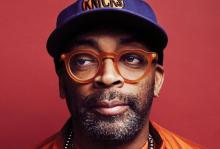
“Always do the right thing.”
“That’s it?”
“That’s it.”
“I got it. I’m gone.”
DA MAYOR (Ossie Davis) and Mookie (Spike Lee) share this exchange in Lee’s film Do the Right Thing, which turns 30 this summer. Three decades on, Lee’s masterpiece on racism and community still stands out for its trailblazing voice. Lee, and the film that blasted him into broad public consciousness, continue to inspire powerful work by filmmakers of color, including Dear White People, Get Out, and The Hate U Give.
It’s undeniable that Do the Right Thing’s bold style and perspective are what helped it become iconic. Its depiction of the police killing of black men also remains powerful and, as it turned out, prescient. The film almost seems to have predicted events that unfolded 25 years later following the deaths of Michael Brown, Eric Garner, and so many others.
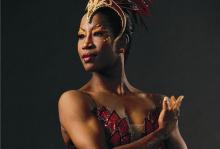
BLACK BALLERINAS have long perfected the art of altering pink tights and ballet shoes to match their skin tones. The night before a class with company members of the Dance Theatre of Harlem, the first black classical ballet company, pots of water with multiple tea bags boiled on the stove in my home, so I could dye my legwear and footwear. It was a process my mother swore by—and it worked.
In November 2018, nearly 200 years after pink ballet shoes were designed for white dancers, the company Freed of London released pointe shoes in colors that match Asian and black skin tones. It’s a step in the right direction, even though the ballet world continues to be characterized by whiteness.

The promise of Field of Dreams is that when we give ourselves to serving the common good at the place where our “deep gladness and the world’s hunger meet,” as Frederick Buechner writes, we don’t just help advance the healing of the people we touch, we also begin to heal our pain.

My high school alma mater is not an anti-Semitic or Islamophobic school, as far as I know. But its mascot is.

So when we seek direction, remind us what is true:
the Advocate is with us to help us follow you.
Christ, guided by the Spirit, may we your people be
A loving, faithful witness in this community.

There are moments in Long Shot, the new comedy in which Charlize Theron and Seth Rogen fall for each other, save the country from dehumanizing polarization, and (maybe) the planet from dehumanized humans, in which I wondered if I was watching something as good as Tootsie. It’s really easy to make a slapstick joke, but really hard to integrate dozens of them into a coherent work (there’s a reason the Marx Brothers don’t have many heirs); and it’s even harder to weave comic tropes into a story that also manages to feel like real life.

For nearly a decade, pollsters have been reporting the trend of disaffiliation with the church, particularly among millennials. This shift is playing out in the black church, though the rates of disaffiliation and eschewing overall spirituality are less pronounced. Black millennials are more likely to pray and believe that a higher power exists than other races, but a steady percentage of black millennials are still disengaging — and they are not returning to the church as they age. Instead, they are finding new ways and places where they can be free to stand in their identity.

Writing poetry has helped me face all the fear and uncertainty that surrounds a lifelong diagnosis.

Dome Karukoski’s Tolkien, out in theaters this Friday, focuses on another story of friendship, that of the Tea Club and Barrovian Society (TCBS) which Tolkien was a part of during his education at King Edward’s School in Birmingham. The film tells the story of Tolkien’s early life as an orphan living in poverty and at the mercy of his benefactors, and the love and friendship he finds in spite of it. Tolkien is gorgeously shot and filmed with warmth, humor, and friendship.

It turns out that The Church of Satan as founded by Anton LaVey was more of a hedonistic club than something to fear, and today’s The Satanic Temple (TST) an entirely distinct organization — an emerging religious community whose tenets are dedicated to compassion, making amends for mistakes, and promoting religious liberty.
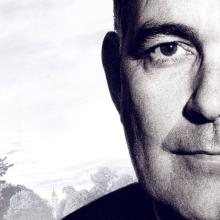
The new documentary Hesburgh, which premieres nationwide on Friday, May 3, and is directed by the Emmy-nominated filmmaker Patrick Creadon (Wordplay, I.O.U.S.A.) gives us a thorough look at Father Hesburgh’s walk. From Hesburgh’s origins to his decision to devote his life to the priesthood, to his appointment — at the young age of 35 — as president of the University of Notre Dame, to all the personal, national, and global adversities that the man of the cloth later faced afterward, Hesburgh weaves a beautiful and engaging story of faith lived out.

As the U.S. Catholic Church discerns how to move forward amidst scandals, the CW’s Jane the Virgin provides a glimpse of what might be in store.

The first line of Avengers: Endgame is “Do you know where you’re going?” And the story that follows, the final chapter of a saga 11 years in the making, is an attempt by the deeply flawed, deeply human protagonists at wrestling with that question — what is our path, do we know it, and can we change it?